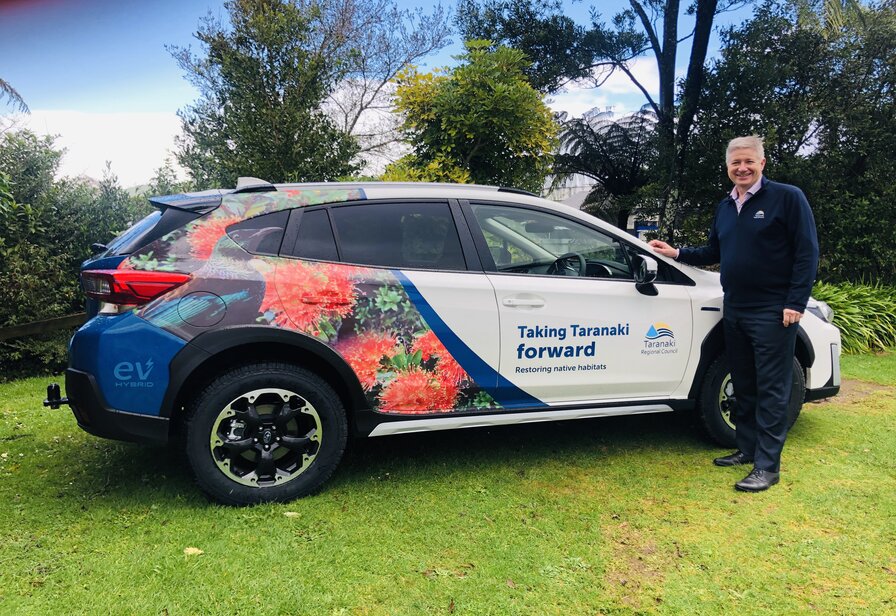An upgrade of Taranaki Regional Council's fleet will be just the start when it comes to future sustainable initiatives within Council.

Going green: Director-Corporate Services Mike Nield with the Subaru XV hybrid which is part of the eco-friendly car fleet helping Taranaki Regional Council to cut emissions.
A fleet of 11 hybrid and one fully electric vehicle will soon be added to the growing list of sustainable measures Taranaki Regional Council is taking over the next three years to reduce emissions.
Change starts within so they say, and that is just the philosophy the Council is adopting by implementing an internal sustainable policy and moving towards a more sustainable future.
Director Corporate Services Mike Nield says it is a good time to re-evaluate current practices to ensure the Council stays connected, healthy and sustainable.
“The new vehicles provide an excellent opportunity to walk the talk, minimise our environmental impact and give our people what they need to thrive. Our staff are supportive of the move to hybrid and electric vehicles and are excited to get behind the wheel.
“While we cannot change every vehicle in the fleet, such as utes required by field staff, electric alternatives are becoming more readily available. A review of our fleet usage and a move to a cleaner, greener fleet is just the start as we also focus on sustainable business practices.
Small changes to the Council’s processes not only cut corporate carbon emissions, but also could have significant ongoing environmental benefits. These 12 vehicles alone will allow the Council to reduce its carbon emissions by .32 tonne per year and result in significant cost savings by reducing running costs by .5L per 100km for every hybrid vehicle.
Other sustainable initiatives include the evaluation of accessory vehicles including e-bikes and drones, waste distribution and minimisation, reutilisation of surplus equipment, water conservation, energy consumption across the business and partnering with regional providers of alternative energy sources, just to name a few.
The possibilities are endless when it comes to the future, with environmental reviews of Council facilities, regional gardens and purchasing strategies on the cards. A Taranaki electric vehicle infrastructure review has also been flagged as a need for the region as a whole.
Mr Nield says the Government’s Sustainable Development Programme of Action requires the Council to consider implementing sustainable development policies. However, this is not the only reason for the changes.
“The Council is accountable to the Taranaki community to ensure our own business practices are aligning with our mission; to promote sustainable use, development and protection of our natural and physical resources.“